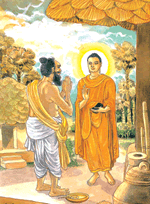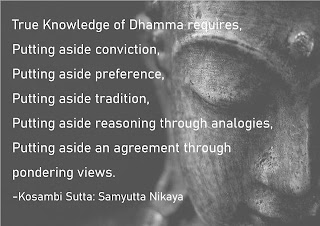A Discussion Between Venerable Alawwe Anomadassi Thero and a Lay Disciple with Reference to Kamma Suttra.

Question: Venerable Sir, when the eye is investigated truthfully according to the Dhamma, it cannot be found to exist, nor is there any apparent functionality of an “eye” that exists. However, an eye is always manifested in the world along with its functionality. Is this the basis for the Buddha’s statement in the Kamma Sutra, “Chakkun bhikkhave purana kamman”? Furthermore, when it is said that something is seen by the eye, it suggests the existence of a functional eye. Yet, in a true sense, such functionality cannot manifest according to the Dhamma. How should this be understood? Answer: Yes, that is the reason. When something is seen, or when we experience a sensation in the eye, it is referred to as arising (samudaya). This sensation can also be understood as a conditioned phenomenon—a result of one thing depending on another. On such grounds, we say there is a visual experience or a sensation in the eye. This sensation is prepared (abhisamkathan) and thought out or willed (abhi...





